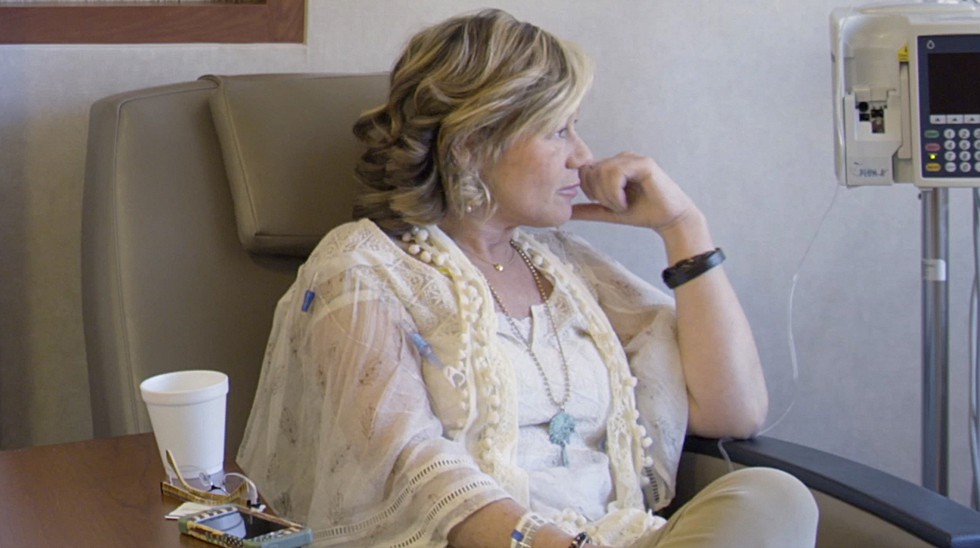FDA Approves New Adjuvant Treatment for Certain Patients with HER2-Positive Early Breast Cancer
May 3rd, 2019
On May 3, 2019, the FDA approved Kadcyla® (ado-trastuzumab emtansine) for adjuvant (after surgery) treatment of people with HER2-positive early breast cancer (EBC) who have residual invasive disease after neoadjuvant (before surgery) taxane and Herceptin®-based treatment.
News in brief
- This approval is an important advance in HER2-positive EBC, based on results of the Phase III KATHERINE study showing adjuvant Kadcyla significantly lowered the chances of cancer coming back compared to Herceptin in people with HER2-positive EBC who had residual invasive disease after neoadjuvant taxane and Herceptin-based treatment
- Kadcyla is Genentech’s first medicine approved under the FDA’s Real-Time Oncology Review (RTOR), which led to approval less than 12 weeks after completing the submission.
- FDA also granted Kadcyla Breakthrough Therapy Designation for this indication, designed to expedite the development and review of medicines intended to treat serious or life-threatening diseases.
- Breast cancer is one of the most common cancers among women worldwide. According to the American Cancer Society, approximately 271,000 people in the United States will be diagnosed with breast cancer, and more than 42,000 will die from the disease in 2019. Approximately 15-20% of breast cancers are HER2-positive based on the result of a diagnostic test.
Supporting Information
Important Safety Information
What is the most important safety information I should know about KADCYLA?
Liver problems
- KADCYLA may cause severe liver problems that can be life-threatening. Symptoms of liver problems may include vomiting, nausea, eating disorder (anorexia), yellowing of the skin (jaundice), stomach pain, dark urine, or itching
Heart problems
- KADCYLA may cause heart problems, including those without symptoms (such as reduced heart function) and those with symptoms (such as congestive heart failure). Symptoms may include swelling of the ankles or legs, shortness of breath, cough, rapid weight gain of more than 5 pounds in 24 hours, dizziness or loss of consciousness, or irregular heartbeat
Pregnancy
- Receiving KADCYLA during pregnancy can result in the death of an unborn baby and birth defects. Birth control should be used while you receive KADCYLA and for 7 months after your last dose of KADCYLA
- If you think you may be pregnant, you should contact your healthcare provider immediately
- If you are exposed to KADCYLA during pregnancy or if you become pregnant within 7 months following your last dose of KADCYLA, you are encouraged to report KADCYLA exposure to Genentech by calling 1-888-835-2555
- If you are a male patient with a female partner that could become pregnant, birth control should be used during treatment and for 4 months following your last dose of KADCYLA
- You should not breastfeed during treatment and for 7 months after the last dose of KADCYLA
Contact your doctor right away if you experience symptoms associated with these side effects.
What are the additional possible serious side effects of KADCYLA?
Lung problems
- KADCYLA may cause lung problems, including inflammation of the lung tissue, which can be life-threatening. Signs of lung problems may include trouble breathing, cough, tiredness, and fluid in the lungs
Infusion-related reactions
- Symptoms of an infusion-related reaction may include one or more of the following: the skin getting hot or red (flushing), chills, fever, trouble breathing, low blood pressure, wheezing, tightening of the muscles in the chest around the airways, or a fast heartbeat. Your doctor will monitor you for infusion-related reactions
Serious bleeding
- KADCYLA can cause life-threatening bleeding. Taking KADCYLA with other medications used to thin your blood (antiplatelet) or prevent blood clots (anticoagulation) can increase your risk of bleeding. Your doctor should provide additional monitoring if you are taking one of these other drugs while on KADCYLA. Even when blood thinners are not also being taken, life-threatening bleeding may occur with KADCYLA
Low platelet count
- Low platelet count may happen during treatment with KADCYLA. Platelets help your blood to clot. Signs of low platelets may include easy bruising, bleeding, and prolonged bleeding from cuts. In mild cases there may not be any symptoms
Nerve damage
- Symptoms may include numbness and tingling, burning or sharp pain, sensitivity to touch, lack of coordination, muscle weakness, or loss of muscle function
Skin reactions around the infusion site
- KADCYLA may leak from the vein or needle and cause reactions such as redness, tenderness, skin irritation, or pain or swelling at the infusion site. If this happens, it is more likely to happen within 24 hours of the infusion
What are the most common side effects of KADCYLA?
The most common side effects in people taking KADCYLA for early breast cancer are:
- Tiredness
- Nausea
- Liver problems
- Pain that affects the bones, muscles, ligaments, and tendons
- Bleeding
- Low platelet count
- Headache
- Weakness, numbness, and pain in the hands and feet
- Joint pain
The most common side effects seen in people taking KADCYLA for metastatic breast cancer are:
- Tiredness
- Nausea
- Pain that affects the bones, muscles, ligaments, and tendons
- Bleeding
- Low platelet count
- Headache
- Liver problems
- Constipation
- Nosebleeds
You are encouraged to report side effects to Genentech and the FDA. You may contact Genentech by calling 1-888-835-2555. You may contact the FDA by visiting www.fda.gov/medwatch or calling 1-800-FDA-1088.
Please click here for Kadcyla full Prescribing Information, including Most Important Safety Information, for additional Important Safety Information.

"This approval is a significant treatment advance for HER2-positive early breast cancer. By working closely with the FDA and participating in the Real-Time Oncology Review pilot program, we are able to make Kadcyla available for people with residual invasive disease after neoadjuvant therapy much sooner than anticipated. With every step forward in reducing the risk of disease recurrence, we come closer to the goal of helping each person with early breast cancer have the greatest opportunity for cure."

